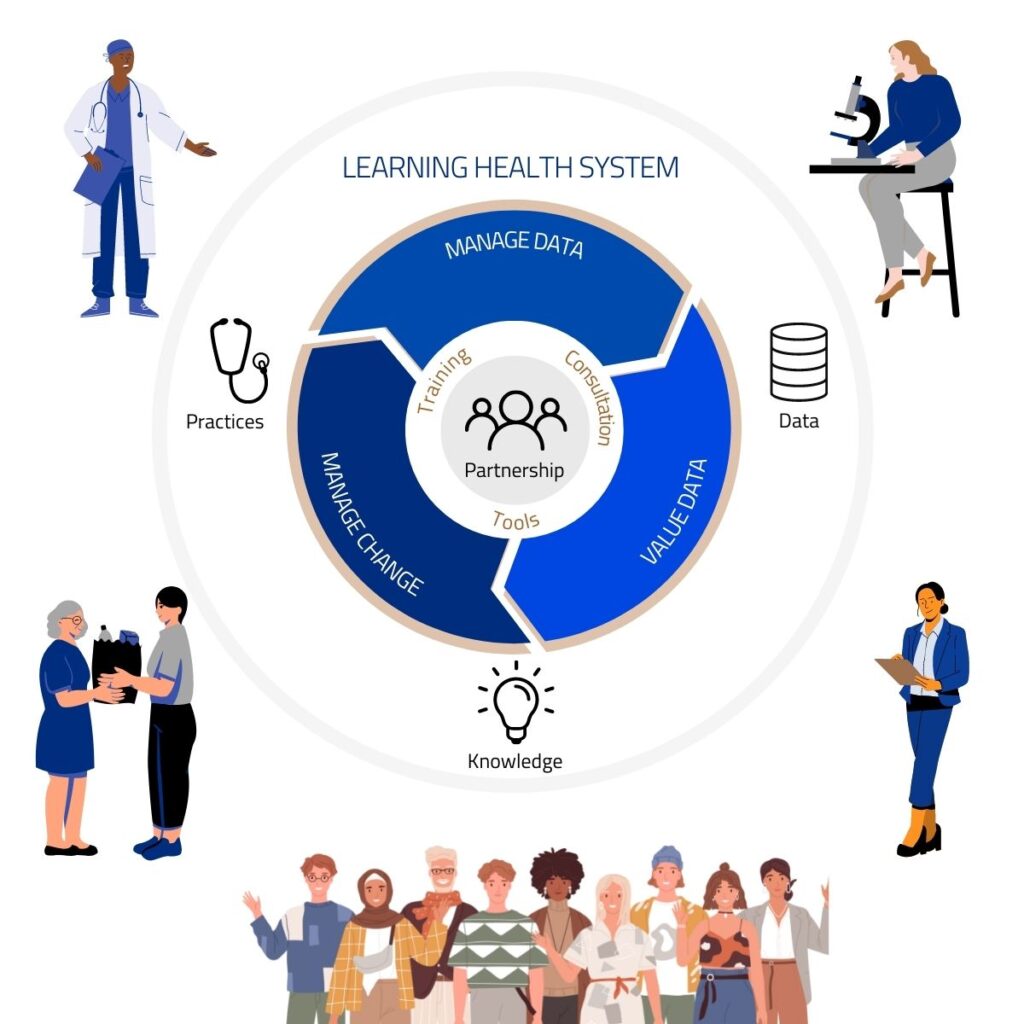Our services
These services are open to all individuals and organizations involved in healthcare research, care and social services, as well as to the general public.
- Support the development of a work structure in partnership with patients
- Support a work team in the reflection, planning and implementation of a project
- Facilitate and animate exchanges on patient partnerships at discussion tables
- Support the evaluation of the partnership within the project
- Support the identification and/or recruitment of patient partners
- Offer partnership training
- Offer mentoring
- Patient
- Offer individual or group mentoring/training to patients/citizens wishing to become involved as partners.
- Project team
- Offer individual or group mentoring/training to teams wishing to become involved as partners.
- Offer individual or group mentoring/training to patients/citizens wishing to become involved as partners.
- Patient
- Offer mentoring
- Support networking with relevant partnership support infrastructures (e.g. partner office, partnership expertise group, etc.).
- Consult a panel of patient partners
- Understand the implications of the patient partner role
- Discuss the benefits of including a patient partner in a project
- Present your project to Indigenous Patient Partners for consultation (assessment of cultural relevance and safety is a prerequisite)
- Consult an Indigenous health expert on best practices for establishing links with an indigenous community
In a learning health system, all forces come together to eliminate working in isolation. There is a partnership between:
- Research
- Healthcare
- Social services
- Management
- The population
Are you a citizen?
This content is for you!

Marie-Ève Poitras, Inf. Ph. D.
For me, the patient partnership is the very essence of health research. It fulfills my desire as a clinician and researcher to help improve the quality of care for and with patients! It is essential in every way and at all stages of the research process.
News
See allNearly $6 million to continually improve services for young people in Québec
Clinical Trials Quebec: your resource for discovering clinical research
A patient partner on the transition committee that will prepare the merger of Santé Québec
The Community of Practice evaluation questionnaire (CoPeval)
Deliverables and tools
See allNearly $6 million to continually improve services for young people in Québec
Clinical Trials Quebec: your resource for discovering clinical research
A patient partner on the transition committee that will prepare the merger of Santé Québec
The Community of Practice evaluation questionnaire (CoPeval)
Publications
See allAn infographic summarizes how to activate Québec's learning healthcare system
Expériences Magazine: living with illness and care
Unité de soutien SRAP du Québec has published its 2014–2021 activity report for the community
How to meaningfully and equitably involve patients and the public in scaling up: upcoming publication of a study protocol
Videos
See allNearly $6 million to continually improve services for young people in Québec
Clinical Trials Quebec: your resource for discovering clinical research
A patient partner on the transition committee that will prepare the merger of Santé Québec
The Community of Practice evaluation questionnaire (CoPeval)
Themes
See allConsent
Québec's health system
Service request
When you apply for support from the Unité de soutien SSA Québec, you are taking part in the emergence of a learning health system (LHS). We offer three types of support: training, consultation and tools.
Team
Marie-Anne Fillion
Patient Partner – Partnership branch of the SSA-RUISSS team Université de Montréal
Newsletter
Subscribe! A benchmark for Quebec’s Learning Health System.

